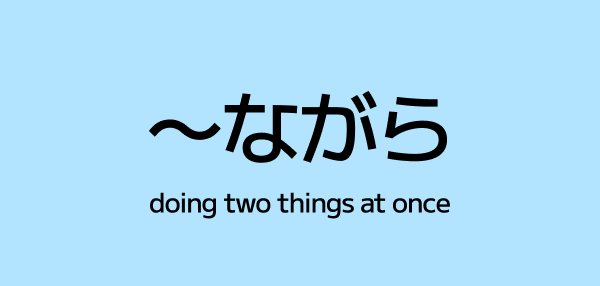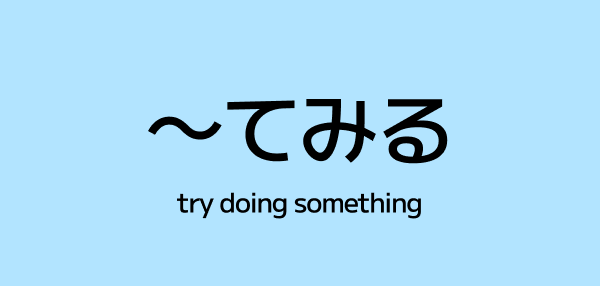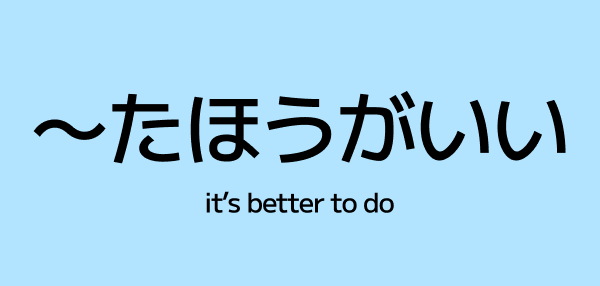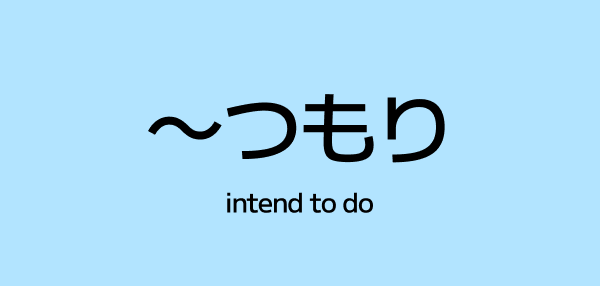~なければならない / ~なきゃいけない (nakereba naranai / nakya ikenai) – must do
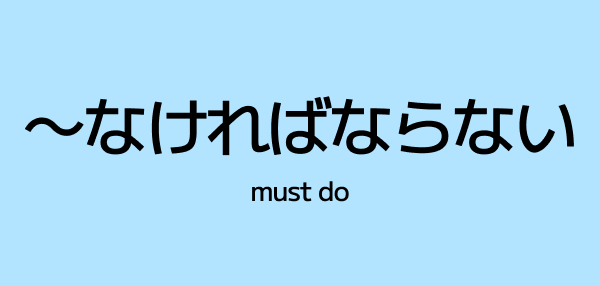
Ever need to say “I have to go” or “You must study” in Japanese? That’s where 「~なければならない」 and its more casual cousin 「~なきゃいけない」 come in.
Both mean “must do” or “have to”.
Let’s break it down 👇
What Does ~なければならない Mean?
「~なければならない」 is the formal, polite way to say:
“must / have to / need to”
Think of it as saying: “If I don't do it, it would be bad.”
Example:
べんきょうしなければなりません。
Benkyou shinakereba narimasen.
→ I must study.
You’ll hear this version in:
- Work situations
- School settings
- News and formal speech
But in casual daily life, people usually say…
~なきゃいけない (More Common & Casual)
This is the spoken, shortened form of ~なければならない.
Example:
もうかえらなきゃいけない。
Mou kaeranakya ikenai.
→ I gotta go home.
Same meaning, but more natural for talking with friends.
You might also hear:
- ~なきゃ → ultra casual version (dropping the いけない)
- たべなきゃ!(Gotta eat!)
- トイレに行かなきゃ!(Gotta go to the bathroom! )
- ~なくちゃ (another variant with same meaning)
- 急がなくちゃ!(Gotta hurry!)
How to Conjugate Verbs to ~なければ / ~なきゃ
Here’s how to turn a verb into this “must” form:
1. Start with the ない-form of the verb (negative form)
2. Remove ない
3. Add:
- なければならない(formal)
- なきゃいけない(casual)
- なきゃ(super casual)
Examples:
- たべる → たべない → たべなければならない / たべなきゃいけない
- いく → いかない → いかなければならない / いかなきゃいけない
- する → しない → しなければならない / しなきゃ
- くる→こない→こなければならない/こなきゃ
⚠️ Note: する and くる are irregular, so memorize their ない-forms.
Examples
Here are sentences you'll probably hear in Japan:
- あしたははやくおきなきゃ。
→ I gotta wake up early tomorrow. - しゅくだいをやらなきゃいけない。
→ I have to do my homework. - パスポートをもっていかなければなりません。
→ You must bring your passport. - このくすりをのまなきゃ。
→ I have to take this medicine. - あやまらなきゃ。
→ I have to apologize. 🥲
Try It Yourself!
How would you say...
- I have to leave.
- I have to study Japanese.
- I have to clean my room.
- I gotta sleep soon.
Answers:
- でなきゃいけない。/ でなければなりません。
- 日本語をべんきょうしなきゃ。
- へやをそうじしなきゃ。
- もうねなきゃ。
Cultural Note: Obligation, Indirectly
Japanese people often soften expressions of obligation. Even if it’s a “must,” they might say it in a lighter tone, especially when asking someone else. You can use the 〜ほうがいい grammar instead if you're suggesting someone do something.
Instead of saying:
- あなたはやらなければなりません! "You must do it!" ❌ (Unless you're one of those super strict teachers...)
They might say:
- やったほうがいいと思います。→ “I think it’s better if you do it.” ✅
- やらなきゃだめかな〜? → “I guess I have to do it…” (softer, indirect)
This helps keep the conversation more harmonious and avoids sounding too bossy. Japanese culture cares a lot about keeping relationships harmonious, so try not to demand too much of others with this grammar form.
Quick Recap
- ~なければならない = formal, “must”
- ~なきゃいけない = casual, “have to”
- ~なきゃ = super casual, “gotta”
They all mean the same thing. Just choose based on the situation and how polite you need to be.
Related Grammar
Build Your Japanese Foundation
Keep your momentum going with bite-sized guides for the core writing systems.
Learn Hiragana(ひらがな)
Master the basic script for native Japanese words, particles, and verb endings so grammar patterns click faster.
Go to Hiragana Guide →Learn Katakana(カタカナ)
Get comfortable reading foreign words, brand names, and emphasis so you can recognize more vocabulary everywhere.
Go to Katakana Guide →Save Grammar & Vocabulary with Bento Japanese
Create a free account to get weekly reads, save vocabulary to your Collections, and track your progress.

